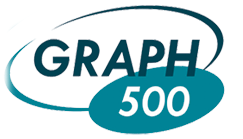Brief Introduction
Data intensive supercomputer applications are increasingly important for HPC workloads, but are ill-suited for platforms designed for 3D physics simulations. Current benchmarks and performance metrics do not provide useful information on the suitability of supercomputing systems for data intensive applications. A new set of benchmarks is needed in order to guide the design of hardware architectures and software systems intended to support such applications and to help procurement. Graph algorithms are a core part of many analytic workloads.
Backed by a steering committee of over 50 international HPC experts from academia, industry, and national laboratories, Graph 500 will establish a set of large-scale benchmarks for these applications. The Graph 500 steering committee is in the process of developing comprehensive benchmarks to address three application kernels: concurrent search, optimization (single source shortest path), and edge-oriented (maximal independent set). Further, we are in the process of addressing five graph-related business areas: Cybersecurity, Medical Informatics, Data Enrichment, Social Networks, and Symbolic Networks.
This is the first serious approach to complement the Top 500 with data intensive applications. Additionally, we are working with the SPEC committee to include our benchmark in their CPU benchmark suite. We also maintain a list of the most energy efficient systems for data intensive computing. The Green Graph 500 will be released together with the Graph500 list. We anticipate the list will rotate between ISC and SC in future years.
The Graph 500 was announced at ISC2010 and the first list appeared at SC2010.

